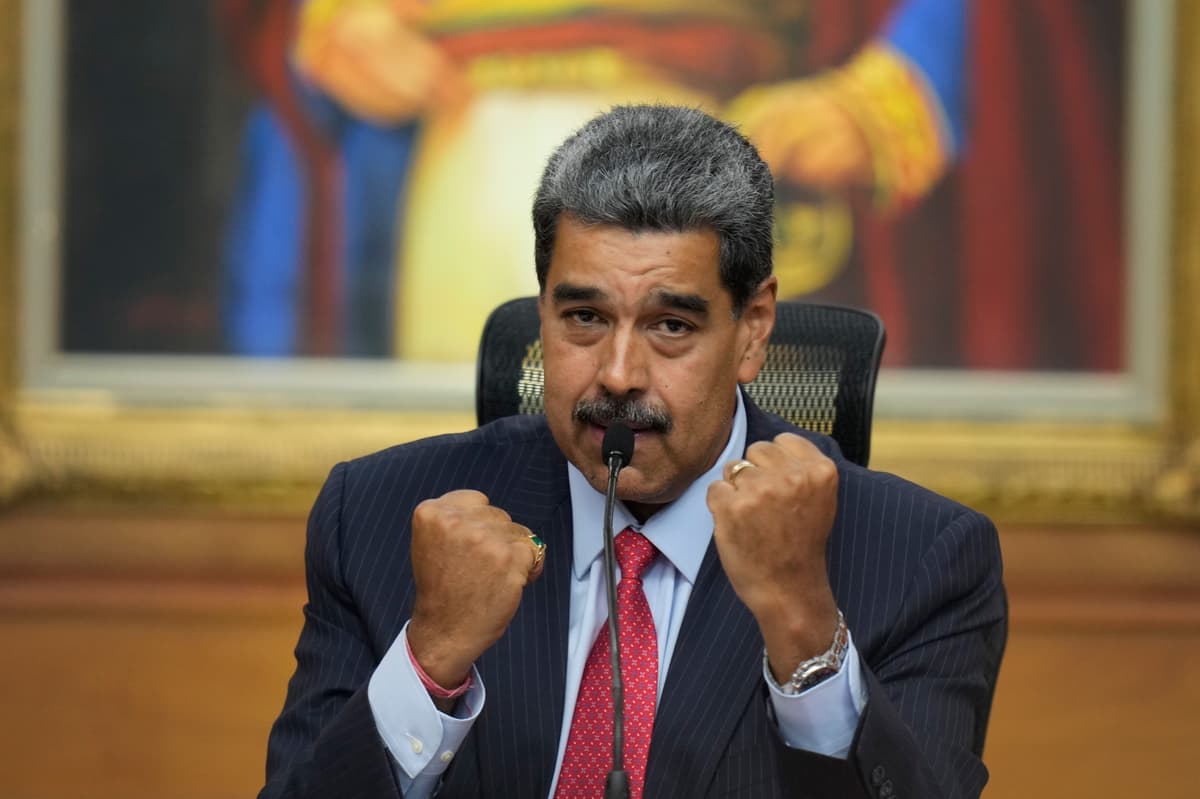Joining Latin America’s Far-Left Leaders, Biden Softens Stance on Dictator Maduro
Biden’s support of a new Venezuelan election seems to reverse an earlier Washington position outlined by Secretary Blinken: ‘Given the overwhelming evidence, it is clear … that Edmundo González Urrutia won the most votes.’

President Biden is joining Latin America’s far-left leaders in a campaign that if it was a film could be titled “Saving Private Maduro.” Hours after President Lula da Silva of Brazil called for a new Venezuelan election, Mr. Biden announced his support.
“I do,” the president said Thursday when asked by a reporter if he supports the idea of a new Venezuelan vote, according to Reuters. The question was likely prompted by President Maduro being scheduled to present the official results of the July 28 election on Friday.
Mr. Maduro has declared victory in the election despite credible tallies that showed the opposition won two-thirds of the votes. Unrest followed, and earlier Thursday Mr. da Silva, along with President Petro of Colombia, proposed two alternative courses of action to calm the streets and resolve the political impasse.
Messrs. Lula and Petro called for an interim power-sharing government between Mr. Maduro’s dictatorship and the opposition, led by the election winner, Edmundo González. Alternatively, they proposed conducting a new election.
Mr. Biden’s support of the second option, a new election, seems to reverse an earlier Washington position outlined by Secretary Blinken on August 1: “Given the overwhelming evidence, it is clear to the United States and, most importantly, to the Venezuelan people that Edmundo González Urrutia won the most votes.”
Although independent observers determined that Mr. Gonzales indeed won the election by a large margin, Mr. Maduro declared himself the winner. Backed by Beijing, Moscow, and Havana, the dictator deployed his shock troops with full force on the streets to suppress protest and a growing call to return democracy to the troubled country.
Some Venezuelans have been skeptical of the possibility of free and fair elections to begin with. Since Mr. Maduro’s predecessor, Hugo Chavez, assumed power at Caracas, “there had been no way to conduct a real election,” an exiled Venezuelan journalist, Maibort Petit, tells the Sun, adding that another election round now would be futile.
Friends and family members who served as ballot observers on July 28 will hesitate to return, as the regime has their names and addresses, Ms. Petit says. “Nobody wants to do that. Remember, more than 2,000 people have been thrown in jails since the election.” Mr. Maduro, she noted, controls all state institutions, including the supreme court.
As for Mr. da Silva’s idea of power sharing with the opposition, she says, Venezuelans compare it to a similar idea in 2009, when Zimbabwe’s dictator, Robert Mugabe, agreed to share power with the African country’s opposition. The result was that Mugabe remained in power until 2017, when he was ousted in a military coup.
Despite skepticism about Mr. Maduro’s commitment to democracy, the Biden administration, Norway, and several Latin leaders negotiated with Caracas for more than a year over allowing the opposition to participate in a free election. In a deal struck last fall, Mr. Biden agreed to remove major American sanctions to facilitate the July 28 election.
The idea that Venezuela could return to democracy remained in vogue even after the most popular opposition leader, Maria Corina Machado, had been barred by the regime from participating in the election. She is now hiding somewhere in Venezuela for fear of retribution after her passport was confiscated by the regime. Mr. Gonzales’s whereabouts are also unknown.
Exactly 24 hours after the election, “we had enough tally sheets already counted through the QR code and physically,” Ms. Machado told reporters recently from her hiding place, the Sun’s Rafael Oliveira reports. “The world knows what happened, the people of Venezuela spoke loudly.”
Rather than helping the opposition claim victory, though, Latin America’s leading leftist leaders, who have the most leverage over Mr. Maduro, immediately started working toward a compromise. At the same time Washington all but lost interest.
Messrs. da Silva and Petro — and to a lesser degree President Lopez Obrador of Mexico — could have presented Mr. Maduro with an ultimatum, a former Mexican foreign minister, Jorge Castaneda, wrote recently: Unless Mr. Maduro quickly presented the official election tally, Latin America would recognize Mr. Gonzales as election winner.
Yet, he added, Mr. Maduro knew that the three leaders were unlikely to challenge him, and that even if they did, their deadline would be long enough for everyone to forget about Venezuela and allow him ample time to falsify the results. Indeed, Mr. Castaneda wrote that “the dictator is still there, time passes, and the opposition is worn out and frightened, with good reason.”
That Mr. Biden is lining up behind Mr. da Silva’s tactics is “terrible,” Mr. Castaneda, now a professor at New York University, tells the Sun.

